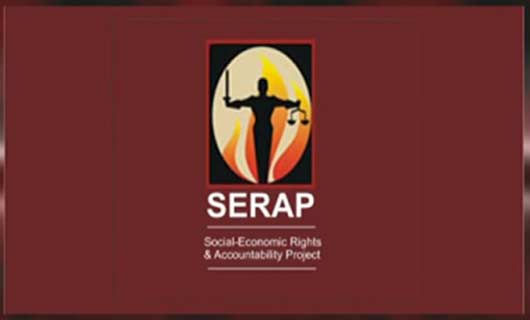The Socio-Economic Rights and Accountability Project has dragged the regime of the President Muhammadu Buhari before the ECOWAS Court of Justice in Abuja over alleged secrecy in the spending of loans obtained, the unsustainable level of borrowing by the government and the states, and the crippling debt burden.
In the suit filed by SERAP lawyers, Kolawole Oluwadare and Opeyemi Owolabi, the group alleged that the persistent and unsustainable borrowing by the federal and state governments and the crippling debt burden undermined the rights of Nigerians to economic and social development, and are antithetical to the public interest.
The group, which noted that the details of the projects on which the loans are spent are shrouded in secrecy, stated that there was a lack of transparency and accountability in the spending of the loans obtained by the government, and opacity around the terms and conditions in loan agreements.
In the suit, the group sought the order of the court directing and compelling the Federal Government to issue an immediate moratorium on borrowing by itself, and the 36 states, in conformity with Nigeria’s international human rights obligations.
SERAP also sought an order directing and compelling the Federal Government to publish details of spending of the loans obtained by governments since 1999, including the list of projects and locations of any such projects on which the loans have been spent.
The suit read in part, “If not addressed, the escalating borrowing and looming debt crisis would cripple the ability of both the Federal Government and the 36 states to deliver and ensure basic socio-economic rights, such as quality healthcare, education, and clean water of the most vulnerable and marginalised sectors of the population.”
“Without a moratorium on borrowing, the Federal Government and many of the 36 states may be caught in a process-driven mostly by creditors’ needs. This will result in an exorbitant social cost for the marginalised and vulnerable sectors of the population.
“The ability of the Nigerian government to ensure human rights is inextricably related to the ability to spend needed resources. Growing debt burdens and debt repayment difficulties will have negative impacts on the ability of the Defendant to fulfil the basic socio-economic rights of poor and vulnerable Nigerians.”
The group further sought a declaration of the court that the failure of the federal and the state governments “to halt the persistent and unsustainable borrowing amounts to a breach of the Plaintiff’s and other Nigerians’ rights to the enjoyment of socio-economic rights, and development, as guaranteed under articles 2, 9, 11, 12 and 13 of the International Covenant on Economic, Social and Cultural Rights, and articles 2, 15, 16, 17, 22 and 24 of the African Charter on Human and Peoples’ Rights.”

